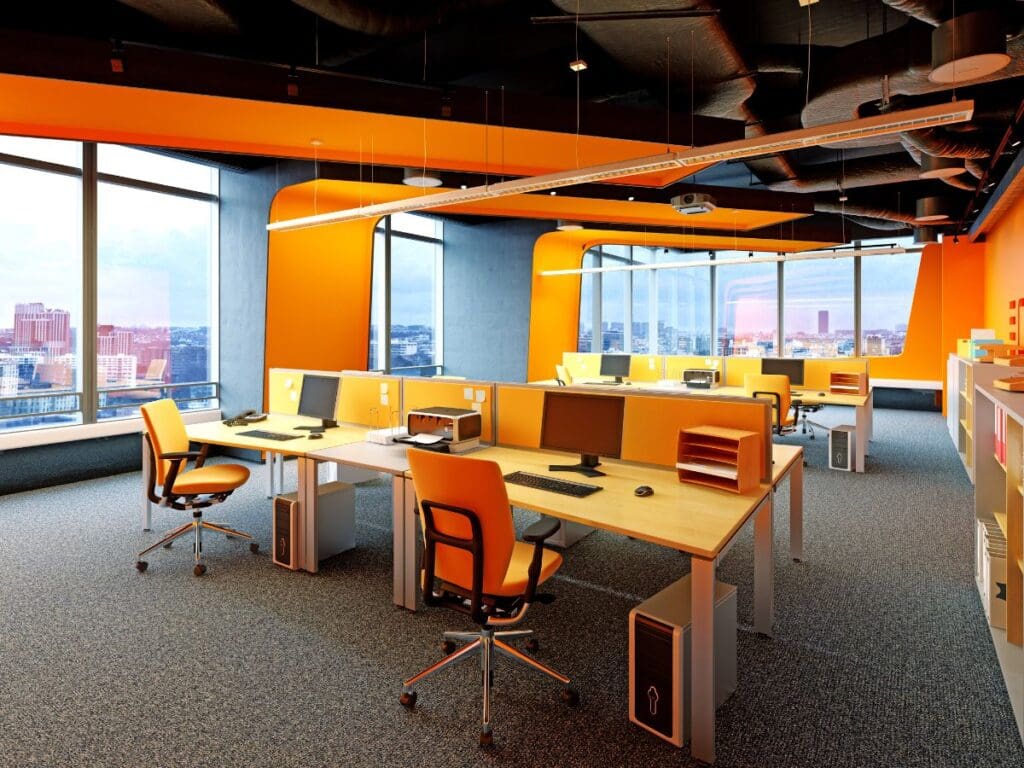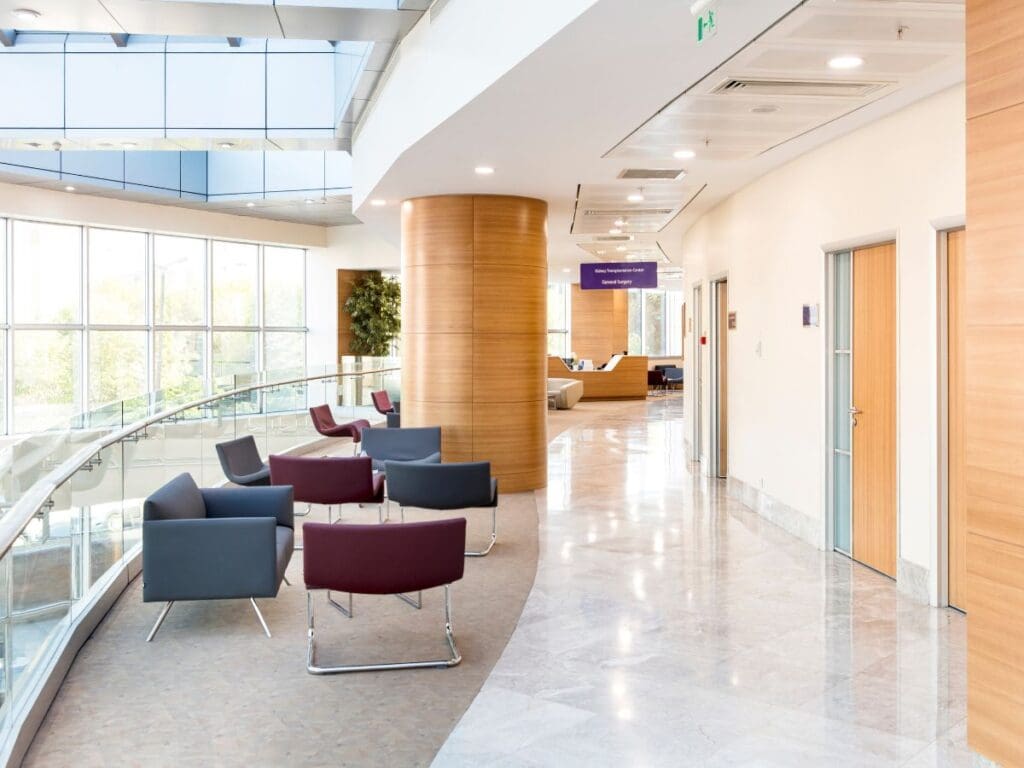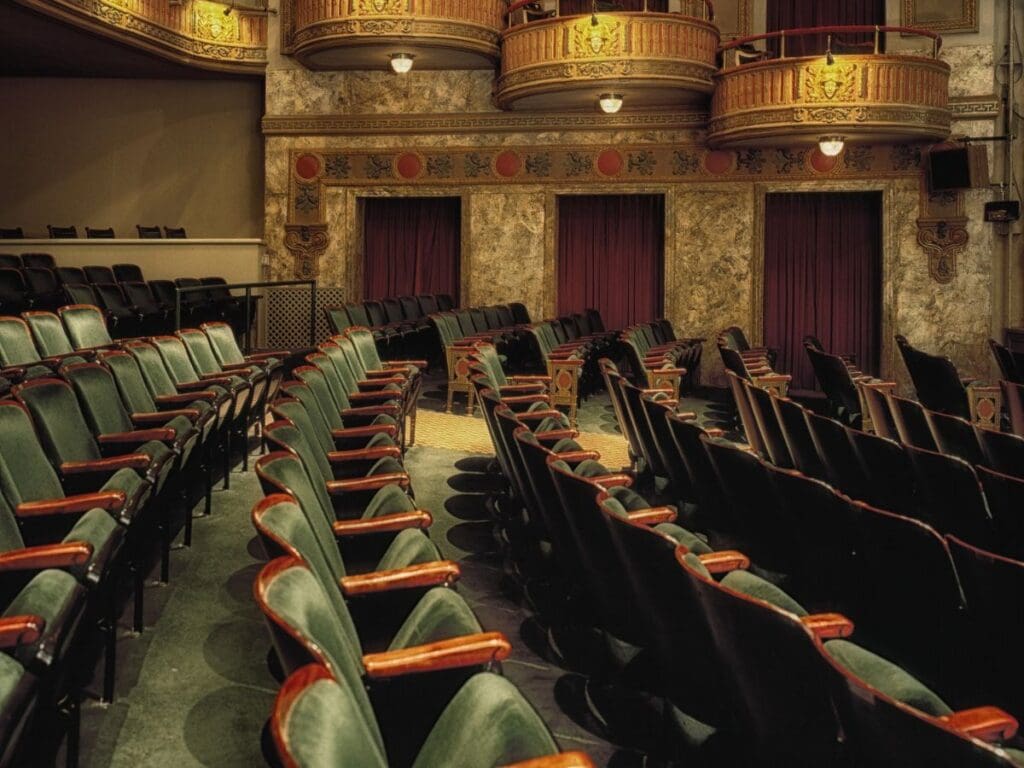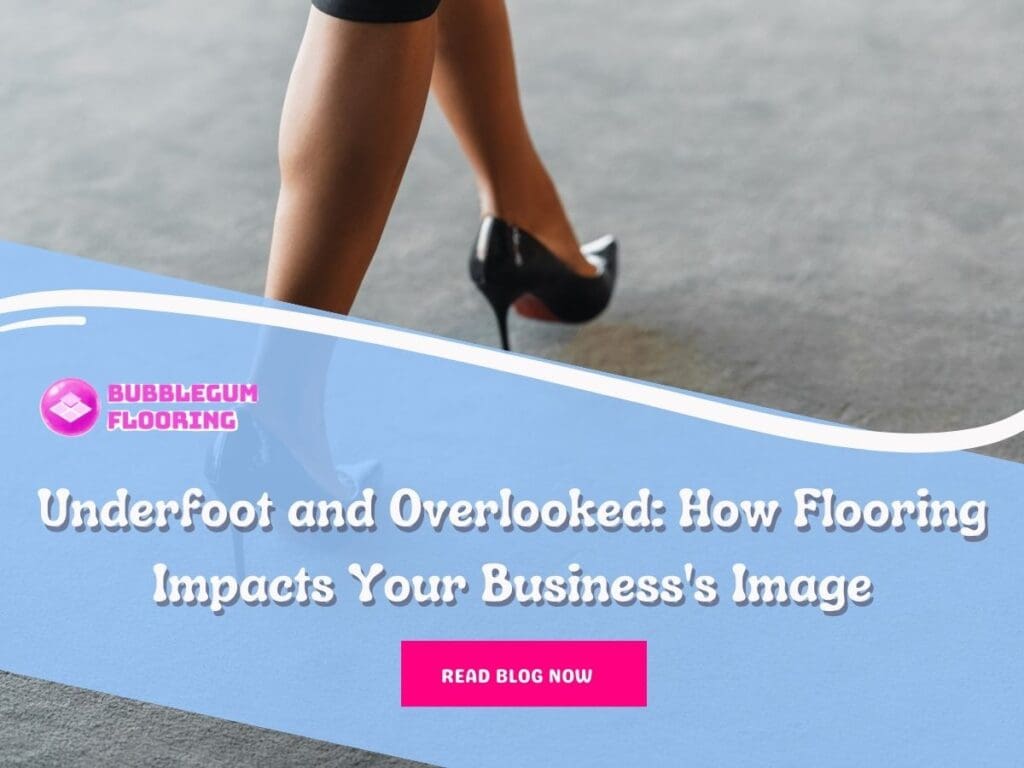How Flooring Impacts Your Business’s Image? Flooring is an often underestimated yet crucial element in shaping the image and functionality of any business. Its impact extends far beyond mere aesthetics, influencing customer perceptions, employee productivity, and overall brand identity.
In this blog, we’ll delve into the multifaceted role of flooring in a business setting, covering aspects such as aesthetic appeal, practical considerations, safety and health, maintenance and durability, and sustainability.
Aesthetic Appeal and Brand Identity
The aesthetic appeal and brand identity of a business are intricately linked to its choice of flooring, which serves as a foundational element in establishing the first impression and overall ambiance. The flooring is not just a part of the physical space; it is a strategic tool that communicates the brand’s values and character.
Reflecting Brand Personality
Luxury brands might use marble or hardwood to signify elegance, while eco-conscious brands could prefer bamboo or recycled wood, highlighting sustainability.
Color, Texture, and Pattern
Bright and colorful flooring can energize a space, while neutral tones suggest professionalism. Custom designs or logos embedded in the flooring can strengthen brand recognition.
Harmonizing with Interior Design
Flooring should complement the overall decor, ensuring a cohesive look. Consistency across multiple business locations is crucial for a recognizable brand image.
Influencing Customer Perception
The type of flooring can shape how customers perceive and experience a business space, influencing their mood and behavior. Soft carpeting creates a comfortable atmosphere, whereas harder surfaces might reflect practicality and efficiency.
In essence, the flooring in a business environment is a pivotal element that goes beyond aesthetics, actively contributing to the establishment of a strong and coherent brand identity. It affects customer experience, reinforces brand values, and plays a vital role in the overall business success.
Practical Considerations: Traffic and Use
When selecting flooring for a business, practical considerations like the expected traffic and specific use of each area are crucial. This choice directly affects the flooring’s longevity, maintenance needs, and suitability for the intended activities.

High-Traffic Areas
Durability is paramount in entryways, hallways, and retail spaces. Materials like ceramic tile, reinforced vinyl, or commercial-grade carpet are ideal due to their resilience to constant foot traffic and ease of maintenance.
Office Spaces
Comfort and noise reduction are key. Carpeting, especially with a supportive underlay, offers a quieter and more comfortable environment.

Industrial Areas
In places with heavy machinery or potential spills, durable and safe flooring like concrete or industrial-grade vinyl is necessary.
Hospitality and Leisure
These sectors require a balance between aesthetic appeal and durability. Options like laminate, hardwood, or luxury vinyl are suitable.

Special Needs
Slip-resistant flooring in wet areas and sound-absorbing materials in places like theaters or studios are important for safety and functionality.

Overall, the choice of flooring should align with the specific demands of different business areas, balancing durability, maintenance, aesthetics, and safety to meet the practical needs of the business’s daily operations.
Safety and Health
In a business environment, flooring choices significantly impact safety and health. This aspect is especially crucial in industries where the risk of accidents is higher or where employee and customer well-being is a priority.
Slip Resistance
Essential in wet areas like kitchens and bathrooms, slip-resistant flooring helps prevent falls and injuries. Textured surfaces are beneficial for added grip.
Air Quality and Allergens
Selecting low-VOC or natural flooring options is important for maintaining good indoor air quality, as some synthetic materials can emit harmful compounds.
Cleanliness
Easy-to-clean flooring reduces the accumulation of dust, allergens, and bacteria, promoting a healthier environment.
Ergonomics and Comfort
For areas where employees stand for long periods, ergonomic options like anti-fatigue mats can enhance comfort and reduce physical strain. Additionally, carpets can improve acoustic comfort by absorbing sound.
Regulatory Compliance
Adhering to industry-specific safety and hygiene regulations is critical for legal compliance and ensuring a safe working environment.
In summary, choosing flooring that prioritizes safety, health, and comfort is essential for a safe and conducive business environment, benefiting both employees and customers.
Maintenance and Durability
The maintenance and durability of flooring are crucial in a business environment, impacting long-term costs, appearance, and functionality.
Durability for High Traffic
Materials like porcelain tiles, high-grade vinyl, or polished concrete are ideal for high-traffic areas due to their resistance to wear and tear, enhancing longevity and reducing the need for frequent replacements.
Ease of Maintenance
Choosing flooring that is easy to clean and maintain, such as laminate or vinyl, and resistant to stains is essential in busy commercial settings.
Cost-Benefit Analysis
While durable materials may have a higher initial cost, their long-term efficiency and lower maintenance needs can offer better overall cost savings.
Adaptability
Flooring options like modular carpet tiles or certain types of vinyl allow for easy replacement of small sections, adapting to changes in business layouts or designs.
In summary, selecting flooring that balances durability with ease of maintenance ensures a cost-effective, practical, and aesthetically pleasing business environment.
Sustainability and Environmental Impact
The sustainability and environmental impact of flooring choices are increasingly crucial in business, reflecting environmental responsibility and appealing to eco-conscious consumers.

Eco-Friendly Materials
Options like bamboo, cork, and reclaimed wood are sustainable, while recycled rubber or plastic flooring supports waste reduction.
Manufacturing and Lifecycle
Selecting flooring from manufacturers with eco-friendly practices and considering the entire lifecycle, from production to disposal, reduces environmental impact.
Indoor Air Quality
Low-VOC materials improve indoor air quality, contributing to a healthier workplace environment.
Energy Efficiency
Materials that offer better insulation, like thick carpets or cork flooring, can enhance energy efficiency, lowering energy costs and environmental impact.
Green Certifications
Looking for certifications like GreenGuard, LEED, or FSC helps in choosing flooring that meets environmental and sustainability standards.
In summary, opting for sustainable and environmentally friendly flooring is vital for modern businesses, aligning with environmental conservation efforts and meeting the preferences of eco-conscious consumers, thus enhancing the brand’s image and potential for success.
Conclusion
The impact of flooring on a business’s image and functionality is substantial and multifaceted. From creating a strong first impression to reinforcing a brand’s identity, the right flooring choice is a critical element in the overall design and feel of a commercial space.
It extends beyond mere aesthetics, influencing customer and employee experiences, safety, and health, and even contributing to a business’s sustainability efforts. In today’s competitive market, overlooking this vital aspect can be a missed opportunity for businesses to resonate with their target audience and enhance their operational efficiency.
Ultimately, the selection of appropriate flooring is not just an investment in a physical asset but a strategic decision that reflects and shapes a company’s identity, values, and long-term success.


